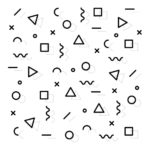
HKR Trainings is not an affiliate of SAP AG. The Open Group®, TOGAF® are trademarks of The Open Group. registered in the United States and other nations.  PMI®, the Registered Education Provider logo, PMBOK®, PMP®, PgMP®, PfMP®, CAPM®, PMI-SP®, PMI-RMP®, PMI-ACP®, PMI-PBA® are trademarks of the Project Management Institute, Inc. All Courses & Certifications names are registered Trademarks of their respective owners. ServiceNow is a Registered Trade Mark of ServiceNow Inc. Scala offers a most gracious way to deal with these situations. In Java, they are manipulated by a try or catch or left unattended, leading to errors in the program. None: There are a lot of circumstances in programming in which we have received unexpectedly null for the methods that we call. Nothing is generally used as the return type for methods with an anomalous end and give rise to an exception.
PMI®, the Registered Education Provider logo, PMBOK®, PMP®, PgMP®, PfMP®, CAPM®, PMI-SP®, PMI-RMP®, PMI-ACP®, PMI-PBA® are trademarks of the Project Management Institute, Inc. All Courses & Certifications names are registered Trademarks of their respective owners. ServiceNow is a Registered Trade Mark of ServiceNow Inc. Scala offers a most gracious way to deal with these situations. In Java, they are manipulated by a try or catch or left unattended, leading to errors in the program. None: There are a lot of circumstances in programming in which we have received unexpectedly null for the methods that we call. Nothing is generally used as the return type for methods with an anomalous end and give rise to an exception. 
It integrates all kinds of AnyVal and AnyRef. It only can be used as a type because nothing can be instantiated. It assists in providing the return type of operations that may impact the flow of a normal program. Nothing: This is a subtype of all types which exists in the hierarchy of Scala types. It shows the lack of type information for complex types which are inherited from the AnyRef. Since Scala works on JVM, it will use NULL to provide support for the Java null keyword, or in terms of Scala, for providing the type for the null keyword, the Null type exists.

Null: This is an AnyRef type subtype in the hierarchy of Scala types. Nil: This is a useful way to initialize an empty list because Nil is an object that extends List.







 0 kommentar(er)
0 kommentar(er)
